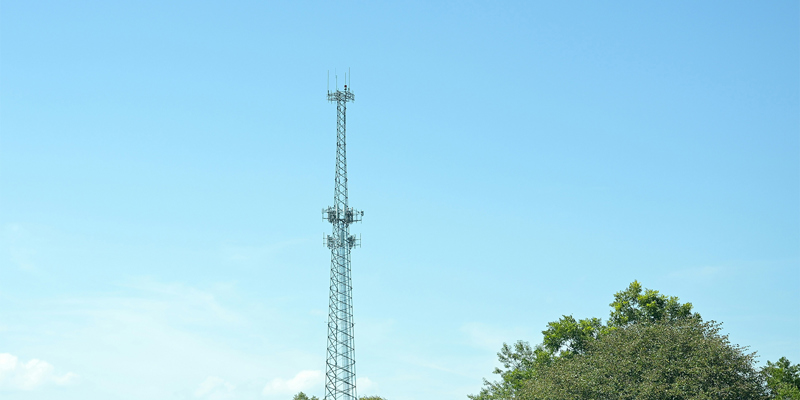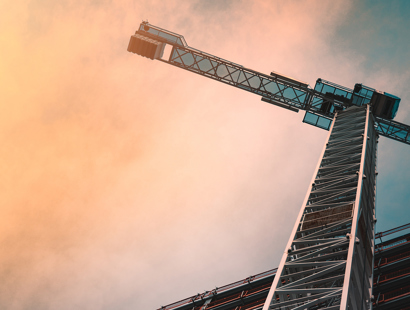
Pride and prejudice: when can a landowner resist the advances of a telecoms operator seeking to build a mast on their land?
The Electronic Communications Code 2017 for landowners and telecoms operators
It is a truth universally acknowledged that a landowner in possession of a field or rooftop must be in want of a mobile phone mast… The Electronic Communications Code 2017 has been the catalyst for marriages between landowners and telecoms operators across the country for nearly three years.
From the published case law, we are starting to build up a reasonably clear picture of how the Code is to be interpreted. One of the key features of the Code is that it is pretty difficult for a landowner to hold back the tide when a digital infrastructure provider has identified its land as a suitable location for telecoms equipment but a recent decision provides guidance as to when it might be possible.
When the Government first announced in 2016 that it would be introducing a new Code, its intentions were clear:
"The Government wants to reform the Code to put in place modern regulation which fully supports the rollout of digital communications infrastructure. This infrastructure is vitally important to citizens right across the UK, as digital communications become an ever more essential part of the economic and social fabric of this country."
Those intentions were firmly followed through into the drafting of the Code. For example, paragraph 21 sets out the circumstances in which the court can compel a landowner to grant a telecoms lease to an operator.
When can a landowner resist a telecoms lease?
Assuming the landowner doesn't intend to redevelop the land the court can grant an order to the operator only if both of the following conditions are met:
- the prejudice caused to the landowner by the order is capable of being adequately compensated by money; and
- the public benefit likely to result from the making of the order outweighs the prejudice to the landowner.
It appears to be a straight shoot-out, then, between the non-financial prejudice suffered by the landowner on the one hand and the benefit derived by the public on the other, arising from the installation of a mast or other telecoms equipment.
But paragraph 21(4) binds the court to give special weight to the public benefit side of the equation:
"In deciding whether the second condition is met, the court must have regard to the public interest in access to a choice of high quality electronic communications services."
Cornerstone Telecommunications Infrastructure Ltd v University of The Arts London [2020]
In Cornerstone Telecommunications Infrastructure Ltd v University of The Arts London [2020] UKUT 248 (LC), the Upper Tribunal (Lands Chamber) considered these conditions and the relationship between public benefit and personal prejudice.
The Upper Tribunal made it clear just how high the paragraph 21(4) hurdle is:
"The test for the imposition of such rights is quite a stiff one; for the respondent to escape this public duty, unless it is itself going to redevelop the site, it must show either that it will suffer loss that cannot be compensated in money, or that the prejudice it will suffer is so great that it outweighs the public benefit derived from the use of the site. The level of prejudice must be very high indeed to outweigh the public benefit, in the light of the public demand for, and dependence upon, the availability of electronic communications. The benefit is perhaps even higher today than it was when the Code was enacted and certainly in the current circumstances we are all keenly aware of it."
But, the Tribunal continued, "[t]here comes a point when it is too much to ask" and indeed it was too much to ask in this case because the landowner succeeded on both conditions. The facts of the case are perhaps slightly unusual, involving the redevelopment of the Elephant & Castle area of London and complex arrangements that had been entered into between the landowner and a developer. But the following general propositions can be extracted from the case:
- The "public benefit" involved in the test is the benefit to the public of the operator operating from a particular site, whether or not that benefit could be achieved from another site or by sharing with other operators.
- The public benefit is not reduced by the public disadvantage in building the mast, e.g. because it would prohibit a development that would be of benefit to the public. It is not the court's role to make a net assessment of public benefit in this way.
- A landowner who does not intend to redevelop itself but who has entered into a development contract may still succeed on the basis of the prejudice it would suffer as a result of its contractual obligations. Although the landowner university did not itself intend to redevelop the property (and so could not rely on redevelopment as a ground for resisting the order) it had entered into a contract with a developer for the sale and leaseback of the building. Unless the landowner gave vacant possession of the site to the developer within a certain period, it would have to pay a punitive rent of £3m. Accordingly the landowner would suffer prejudice in the following non-financial ways:
- Litigation to remove the telecoms operator would be stressful for the landowner's employees.
- The landowner would suffer reputational damage as a result of the litigation and difficulties in its relationship with the developer and with its students and prospective students.
- If the litigation is unsuccessful, it will be in breach of its obligations to the developer and could face an application for an injunction. This further litigation would involve further stress, uncertainty and reputational and relationship damage.
Conclusion
This is an unusual case and, whilst the landowner won on these particular facts, the case actually serves to reinforce how difficult it is in ordinary circumstances to prevent telecoms operators from acquiring rights over private land.
The case was also notable for giving particular weight to stress, uncertainty and relationship damage: concepts that in other circumstances might not be expected to hold much sway with the court. The decision will be of benefit to landowners who intend to develop a site but where the development will be carried out by a third party.
Get in touch
If you would like to speak with a member of the team you can contact our property litigation solicitors by email, by telephone on +44 (0)20 3826 7525 or complete our enquiry form.




